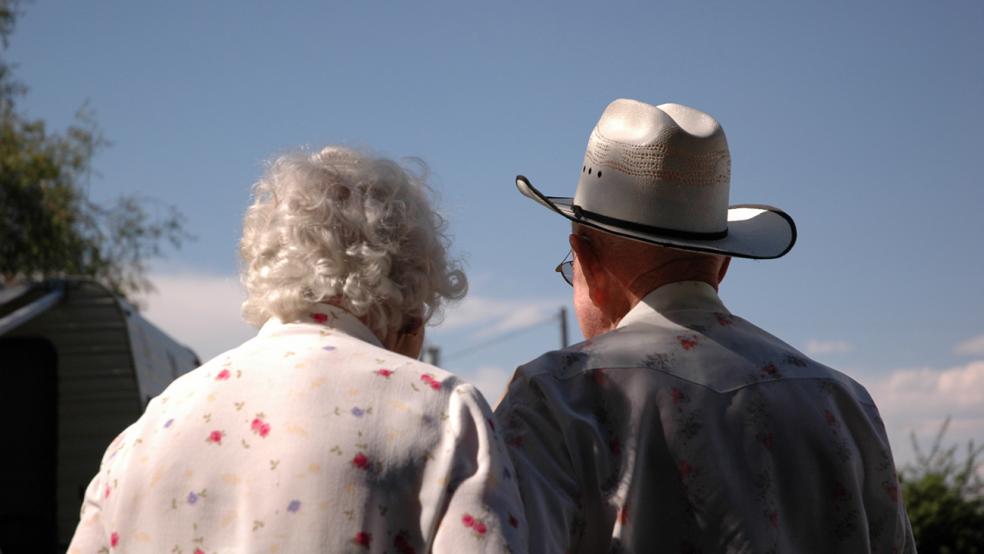When you’re saving for retirement, every bit can help — even if it’s a windfall from an unclaimed source. One person in Texas, for example, is owed $395,000 from the federal government. It's not an uncashed lottery ticket. The amount is pension money left behind by someone who either forgot the account existed or, perhaps more likely, may have died before claiming it, in which case it awaits his or her heirs.
That’s one outsized example of the financial problem of unclaimed property. State, federal and local governments often hold money that people have forgotten is theirs — and total waiting to be claimed runs well into the billions.
Passing Up Pension Money
The Pension Benefit Guarantee Corporation, the federal agency that protects retirement savings by taking control of private employer pension funds being closed or that are in trouble, says that millions of pension dollars are owed in total to tens of thousands of people.
Related: 7 Reasons to Do Your Taxes Right Now
The most current data PBGC could provide, from September 2016, show 24,000 people with a total of $67 million in unclaimed retirement money. The sums range from a measly $5 (easier to send a Starbucks card) to the top, the aforementioned $395,000. See the top 10 states in terms of unclaimed pension money here.
The pot may get bigger under a proposed rule that would add terminated 401(k) and most other defined-contribution plans, in which people and employers regularly add set amounts.
Other Unclaimed Funds
These pension sums are a small fraction of the overall money people have left behind and are owed. “The estimate across the country is $50 billion, but that's based loosely on what states report," said Mark Bracken, assistant treasurer and director of the Unclaimed Property Division of the Massachusetts Office of the State Treasurer.
The funds could have come from many sources: bank or other financial service accounts, wages from a job, tax refunds, stock dividends, inheritances, unclaimed life insurance policy payouts or the proceeds from property auctioned to cover tax payments. Typically, people either forget to cash a check or close out an account or some entity that owes a person money lacks the payee’s current address.
Related: TSA Made $674,841 from Travelers’ Loose Change in 2014
"We have seen some [cases] in the millions [of dollars]," said Michael Zwick, president of Assets International, a Southfield, Michigan firm that tracks down people owed money. "We have a case out of Northern California right now, an older couple that died in their home." Officials determined that the wife was the second to die, so her heirs were entitled to the money "in the high six figures." No one knew who the woman's relatives were, so Zwick's company tracked the person down for the estate.
Finding people can be difficult and, when the sums are small, not worth the time of a firm like Assets International. But all states have websites that people can search to see if they are owed money.
Hunting for Your Money
A number of federal agencies other than PBGC can also have unclaimed funds and search sites. You can try:
- The Federal Deposit Insurance Corporation for banks that were closed between 1989 and 1993,
- the National Credit Union Administration for liquidated credit unions,
- the U.S. Treasury for forgotten U.S. savings bonds,
- the U.S. Department of Veterans Affairs for unclaimed insurance funds
- the U.S. Department of Housing and Urban Development for people owed a refund on insurance premiums.
The National Association of Unclaimed Property Administrators has a site for checking multiple states unclaimed property lists at the same time. The site also has a page of links to federal agencies that might have unclaimed property.
Those sites only work once people have to realize they should search, and sometimes knowing which state to check can be tricky.
Related: Why Your Debt Could Be Killing You — Literally
"If I had a payee in Montana and I'm in New Jersey, I have to turn over the last claimed check to Montana," said Barry Weisman, a partner in the State & Local Tax Group and Tax Controversy Services at New York City accounting firm Anchin, Block & Anchin. However, if a company lacks an address for someone, it turns the money over to its state of incorporation. That could be where the company has its headquarters or might be another state entirely. For example, many businesses incorporate in Delaware. People who don't realize the rules may check with the wrong state.
Before you get too excited about the prospect of finding lost money, beware of scams. Criminals will contact people and claim they are owed property, which might be true or not. Then they ask for money to process the claim and leave the victim high and dry. "One of the things we tell people up front is we don't ask for any payment until you get paid," Zwick said. If someone wants payment in advance, it's likely a scam.




